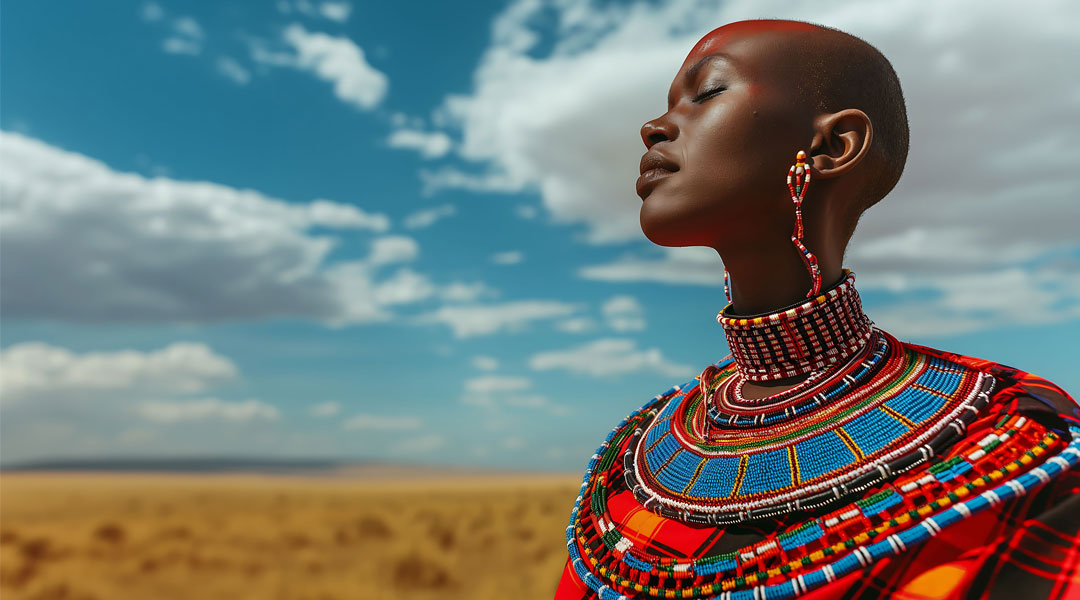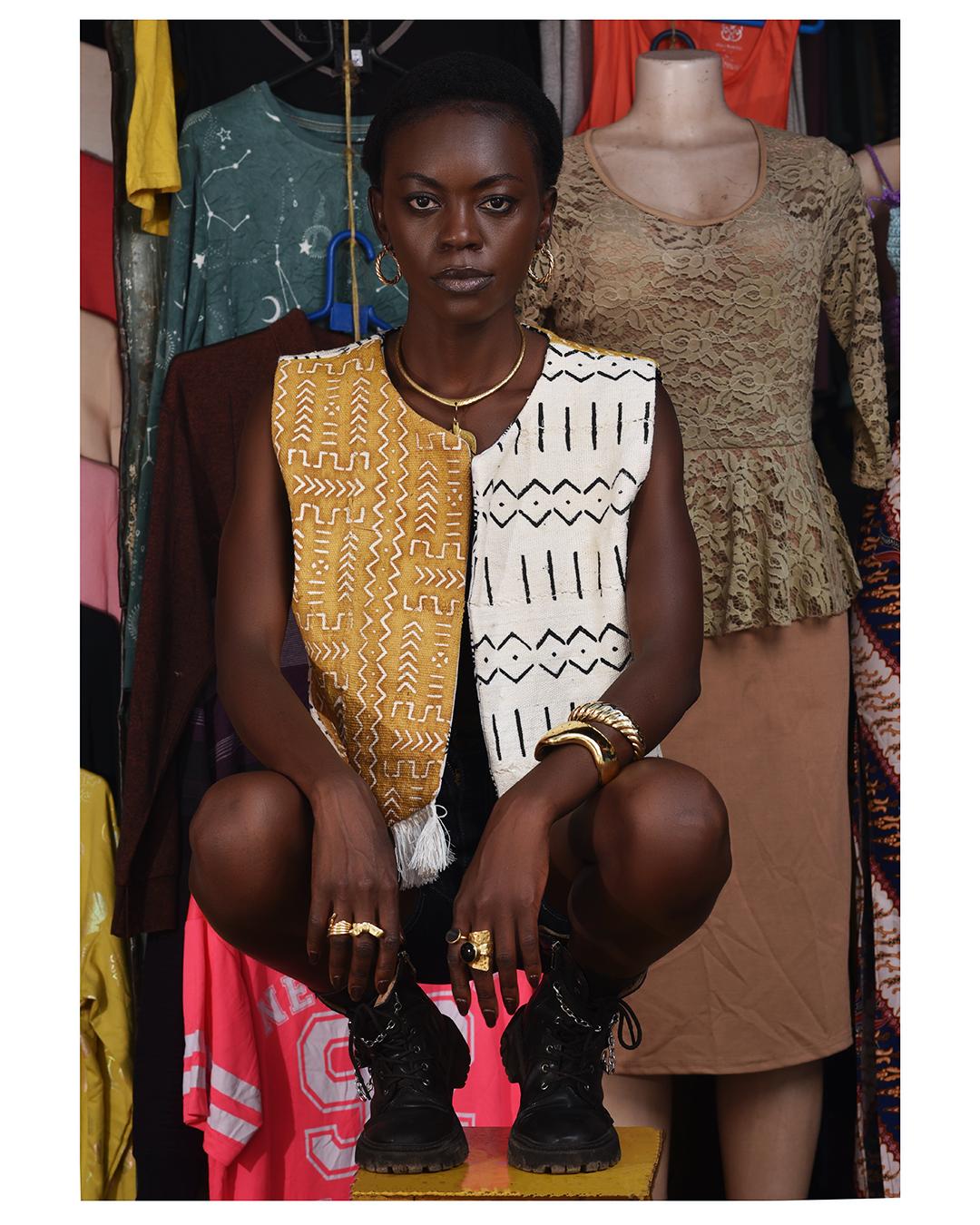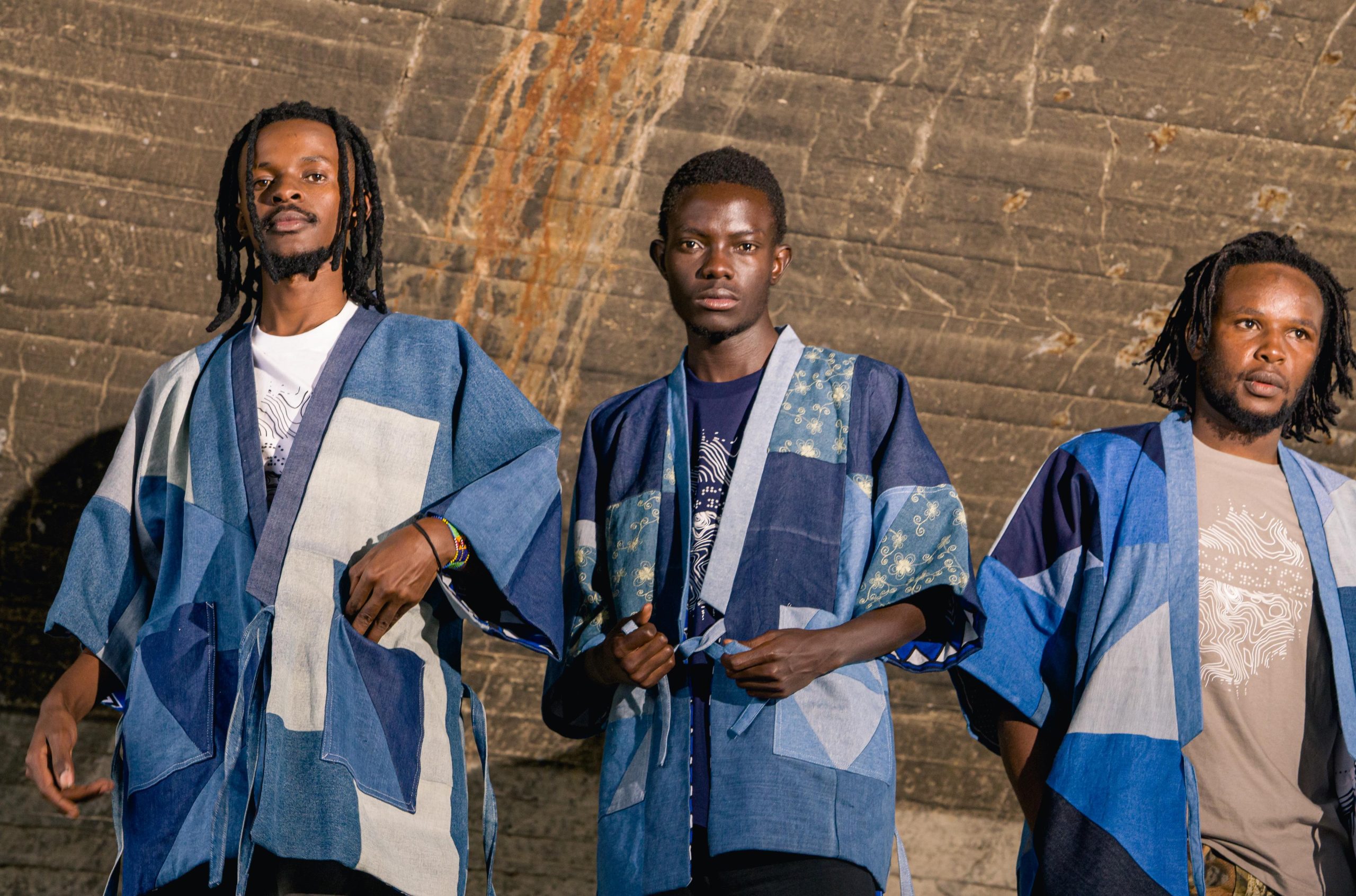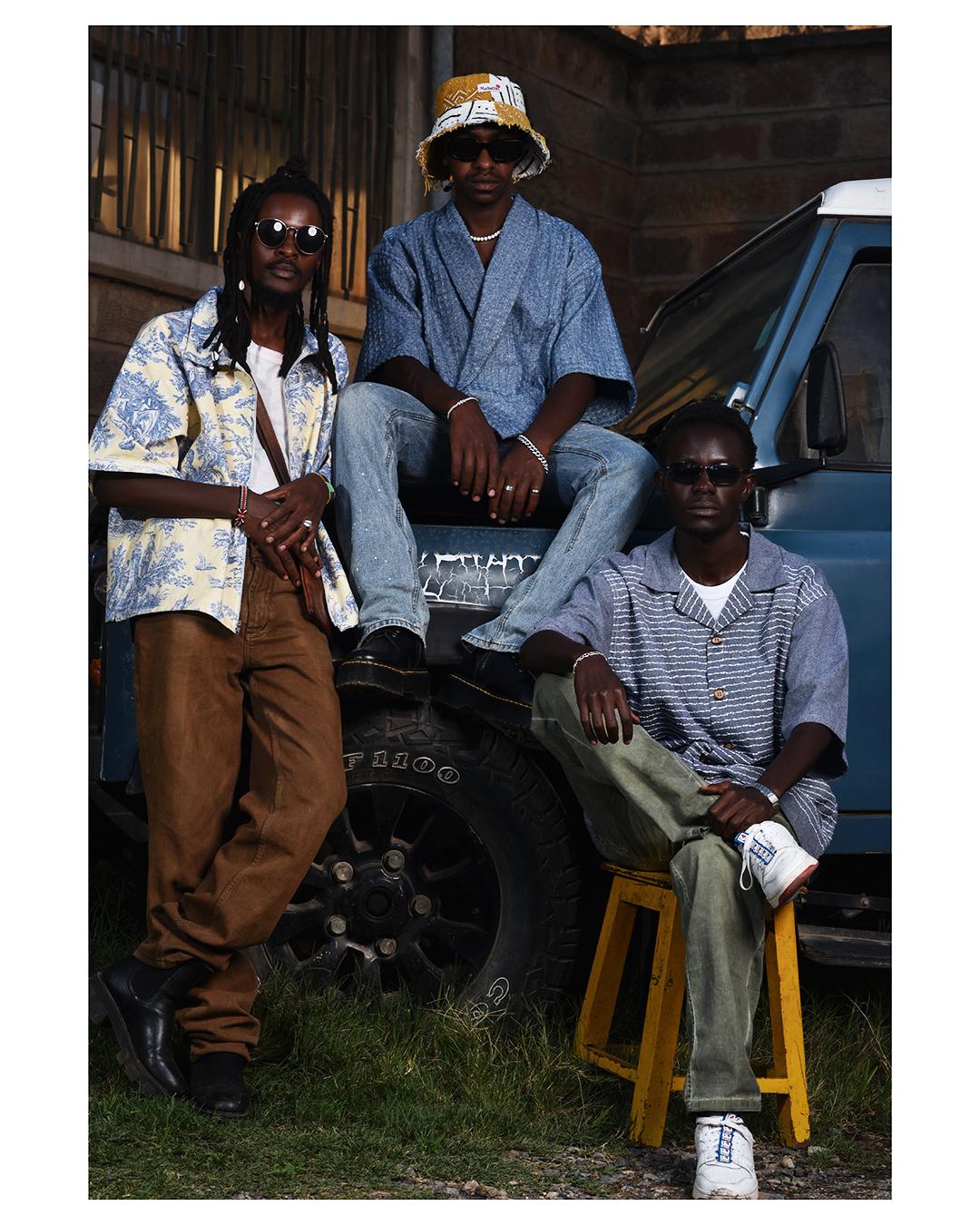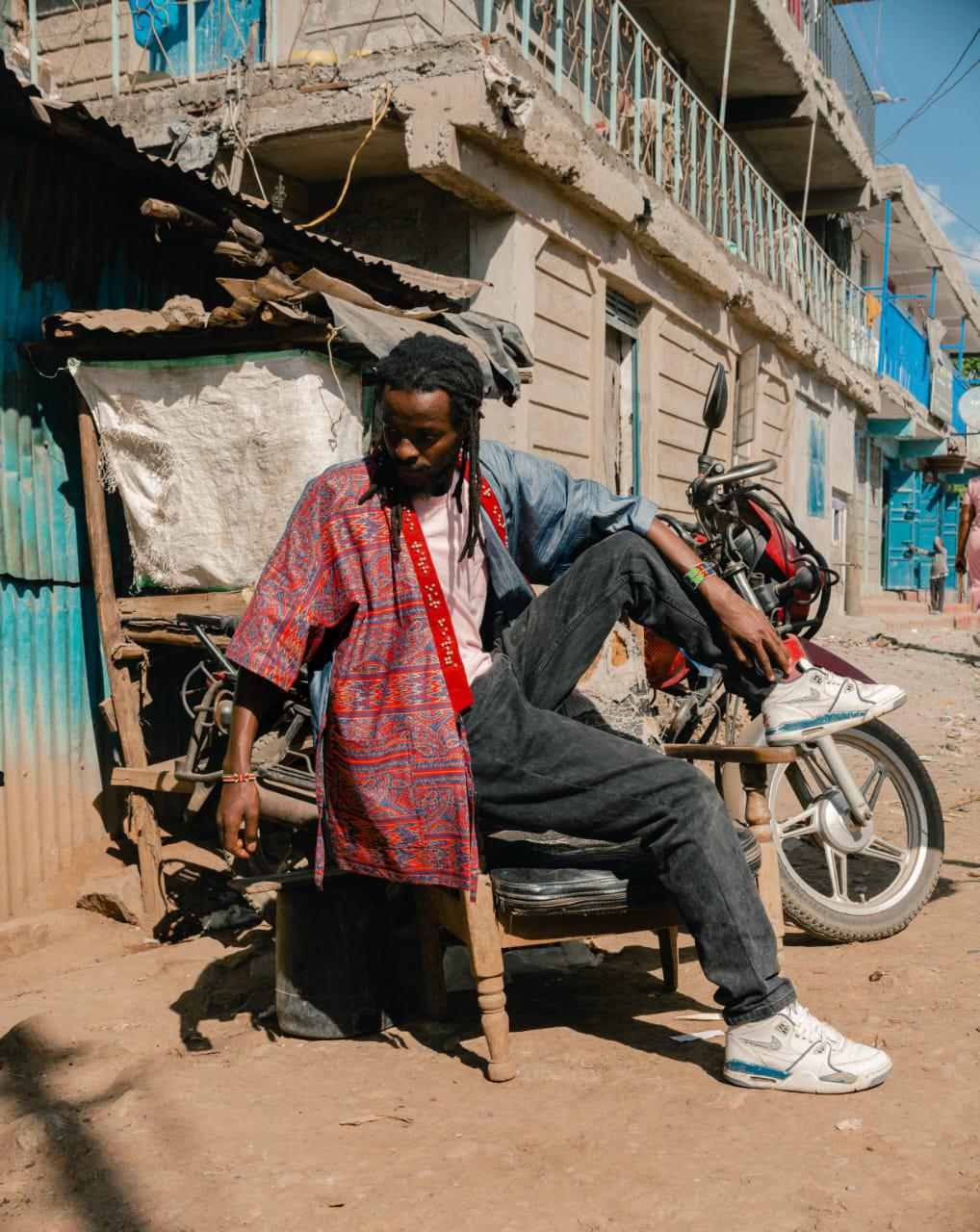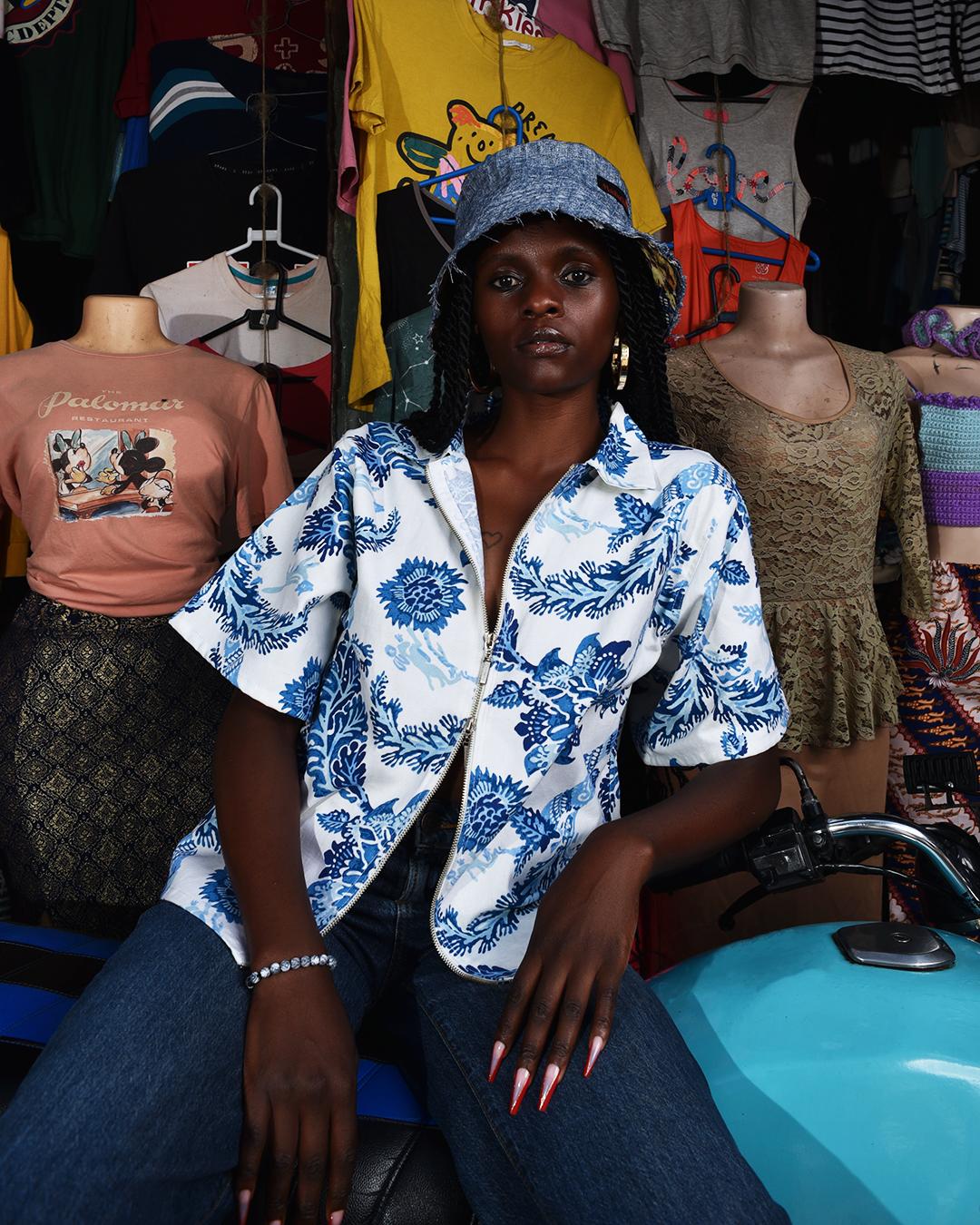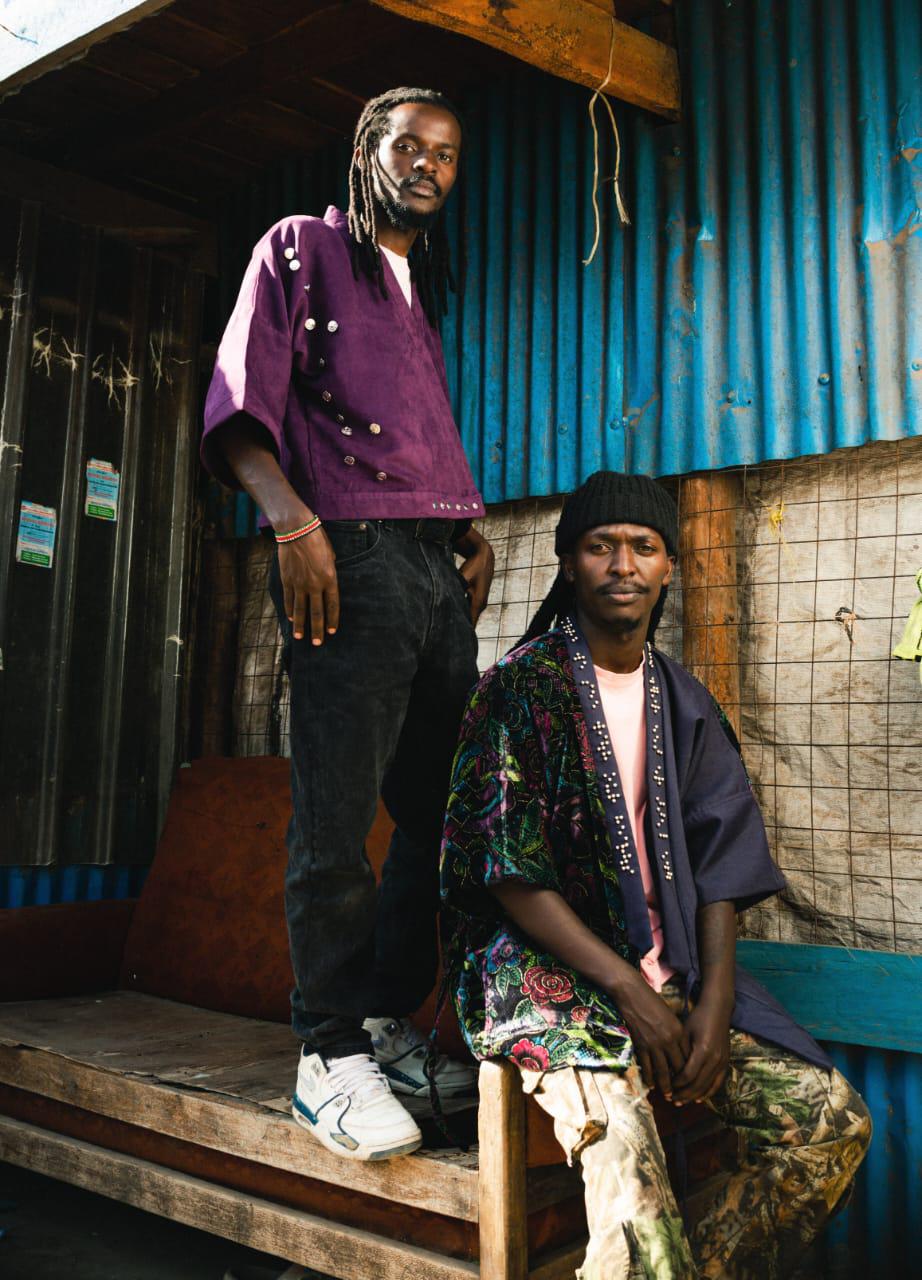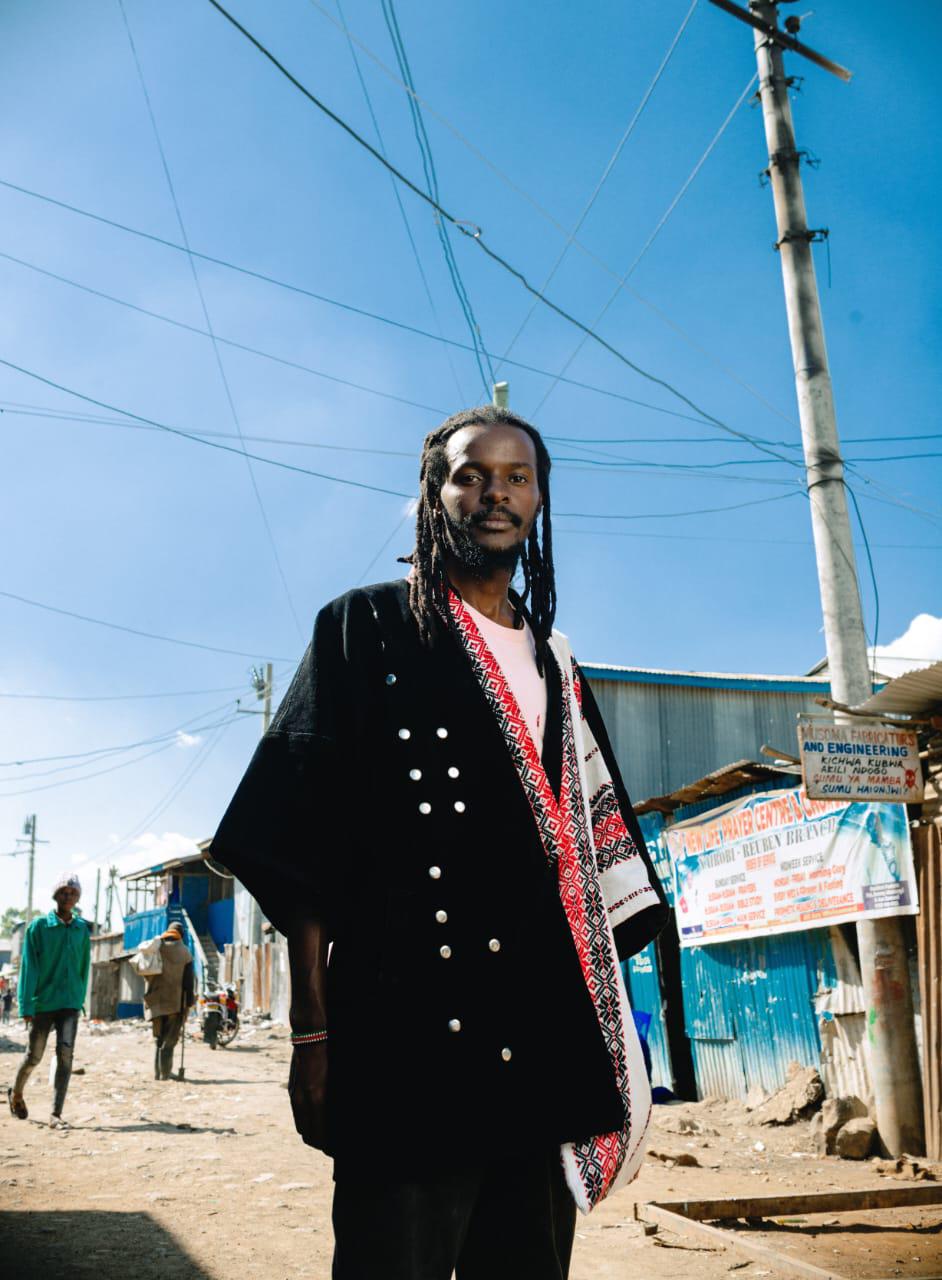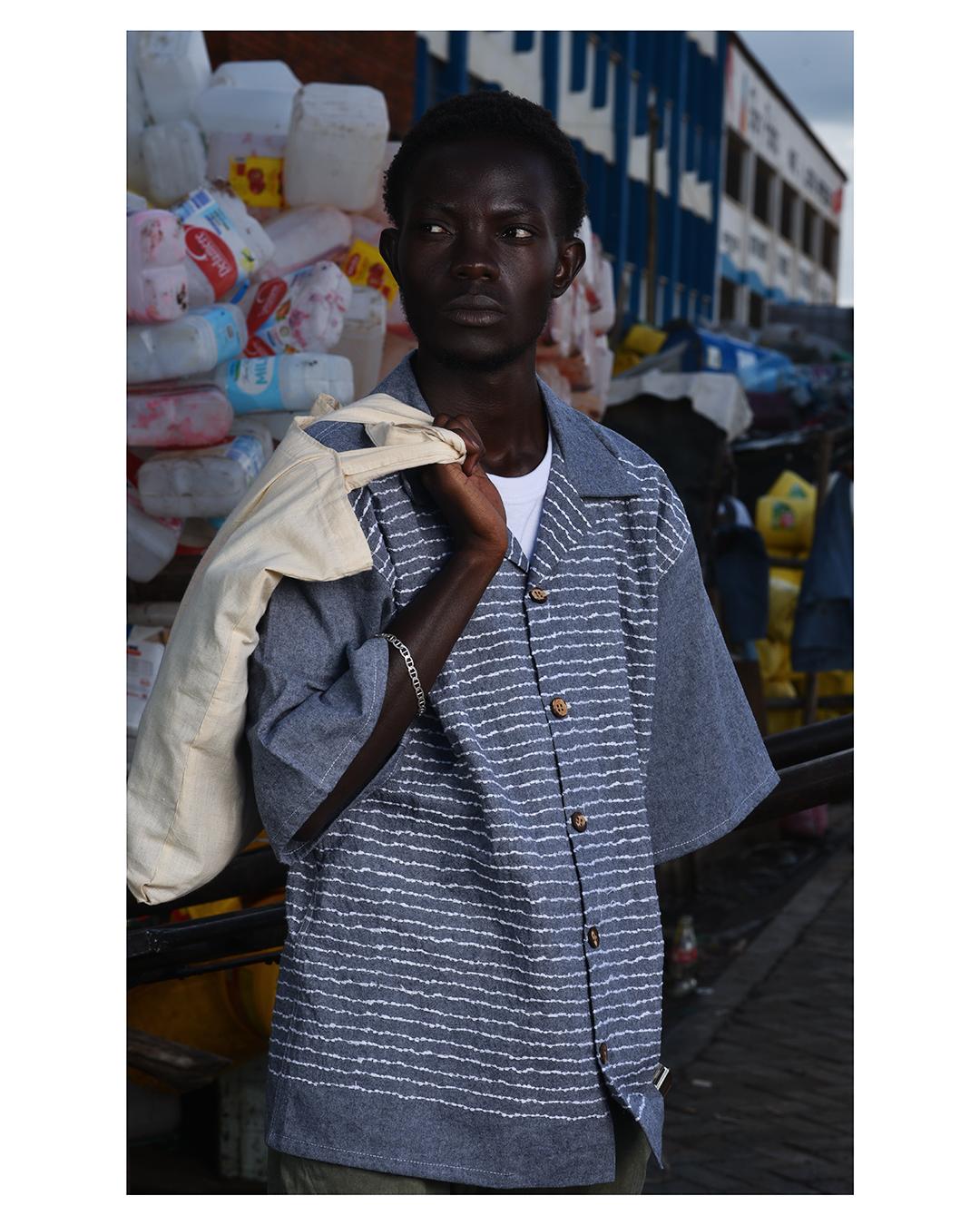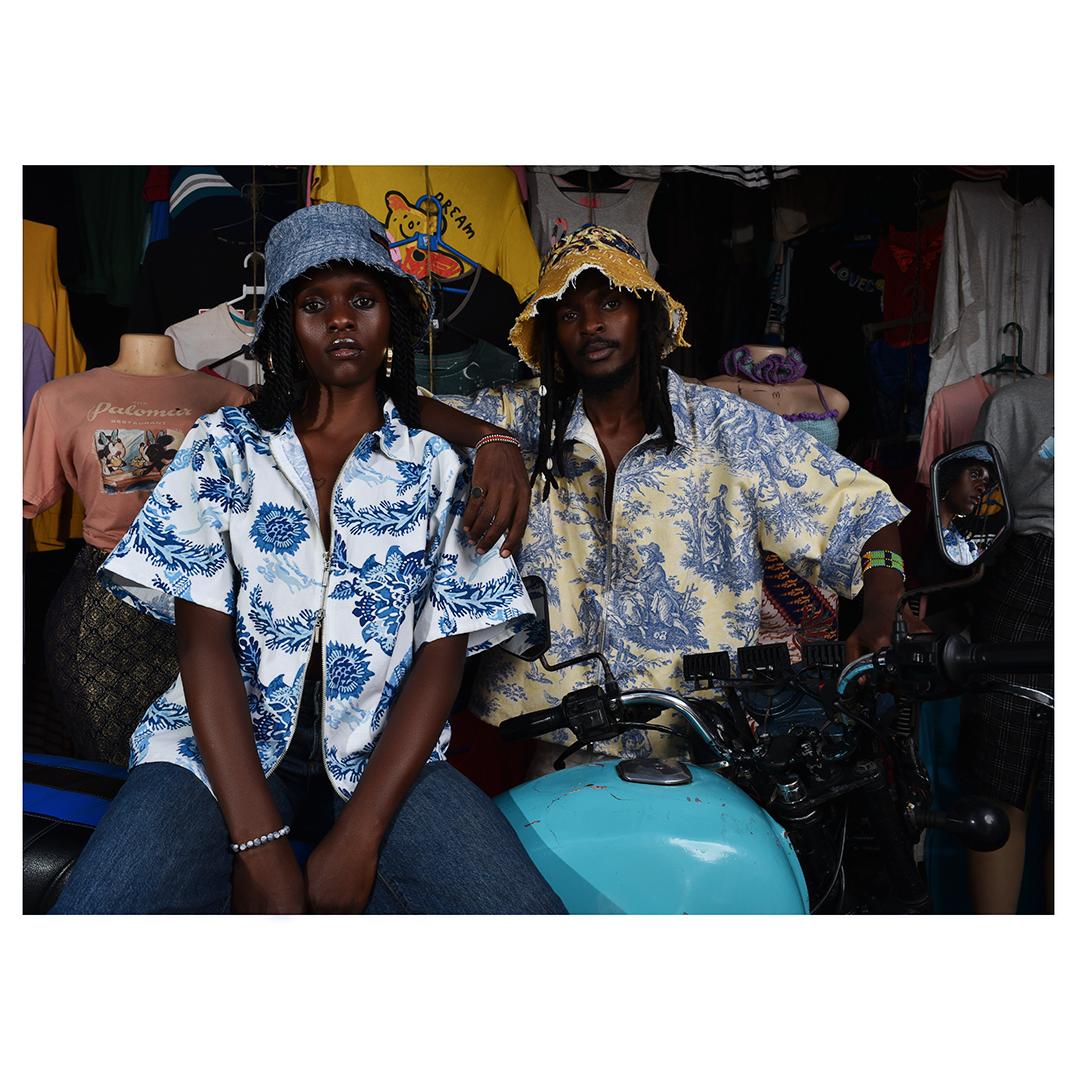Sustainably Styled: The Afro-Street Wear Movement – MABATINI Studio
-
Fesheni.Africa
- July 10, 2025
At Mabatini, sustainability isn’t just a concept — it’s our lived reality. Nestled in the heart of an informal settlement where over 60% of the population depends on the secondhand clothing market, we found our calling right where we stood.
Upcycling and value addition became our tools of empowerment — working with what’s familiar, what’s accessible, and transforming it into fashion that speaks to African identity and innovation. In a place where “mtumba” reigns, we saw not just worn clothes, but untapped potential.
Redefining Sustainability — Our Way
To me, sustainability is simple: it’s about buying what you truly need and value, not what’s trendy or temporarily affordable. It’s fashion with intention — pieces that mean something.
We’re constantly challenging ourselves to go beyond the buzzwords. Through our value addition policy, we’re exploring locally made fabrics to replace the bulky, imported materials that get marketed under “African names.” This isn’t just about aesthetics — it’s about creating a circular fashion economy, rooted in patriotism and authentic African design.
Styling for Impact: Cover Girl with a Cause
I’m thrilled to be styling the upcoming cover girl editorial shoot with pieces from our sustainable collection. This shoot is more than a fashion moment — it’s a celebration of African designers who are reshaping the fashion narrative through regenerative design.
These handmade garments aren’t just camera-ready — they’re conversation-starters. They spotlight the raw beauty of upcycled fashion and remind us that African street style can be both bold and responsible.
The Truth Behind the Textiles
Looking back, I have to admit — we didn’t get it right from the start. I once thought I was working exclusively with African textiles, only to discover that much of it was mass-produced abroad and cleverly marketed to feel local.
That moment opened my eyes. Now, we dig deeper. We’re passionate about reclaiming true Afro-inspired fashion and not being swept up in the illusion of authenticity.
Beyond Trends: Creating Timeless Fashion
At Mabatini, we’re not chasing fashion fads. We’re crafting pieces with soul and story — items designed to outlast trends and connect personally with the wearer. Whether it’s a reworked blazer or a uniquely patched denim jacket, each piece carries a signature touch of sustainable African fashion.
Does the Market Really Care? Well… Yes and No
Let’s be real — most people don’t stop to think about who made their clothes or how they were made. For many, it’s just another pair of pants or a cute dress. But here’s the good news: that small group of people who do care? They really care.
They show love. They ask questions. They come back. And that’s why we keep going — one client at a time, building a movement in the shadows of the mainstream.
Leveling the Playing Field: Fashion Policy Matters
Now, here’s where it gets a little spicy. The market is oversaturated, especially with counterfeit and fast fashion imports. If governments across Africa actually enforced anti-counterfeit laws and promoted ethical production, we’d see a real shift.
African designers deserve a fair shot — to compete, grow, and thrive without being drowned out by knockoffs.
A Word to Creatives Rocking Fake Labels… Stop It!
And finally — yes, this needs to be said. To all the talented artists and creatives out there rocking bootleg Gucci tracksuits thinking it’s a fashion statement… it’s not cutting it, fam.
Please, connect with your favorite African designer (or hey, reach out to us!). Let’s build a fashion culture that’s authentic, expressive, and proudly ours.
The Mabatini Movement
From the vibrant corners of Nairobi to the pan-African stage, Mabatini is reshaping African street style, one upcycled piece at a time. We’re not just designing — we’re educating, transforming, and creating a style revolution that the world can’t ignore.
Because African fashion isn’t just beautiful — it’s smart, sustainable, and here to stay.
All Images Courtesy of Mabatini Studio. 2025
